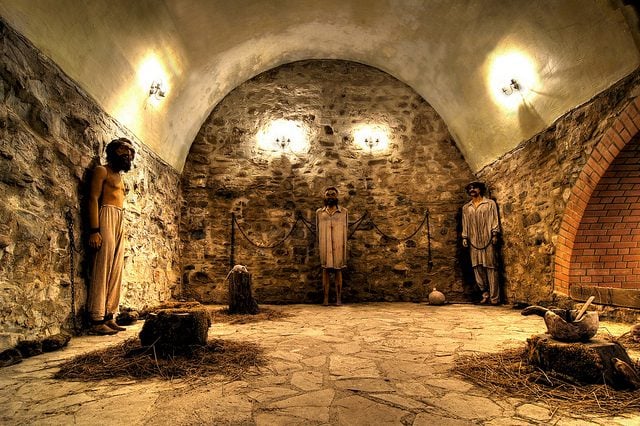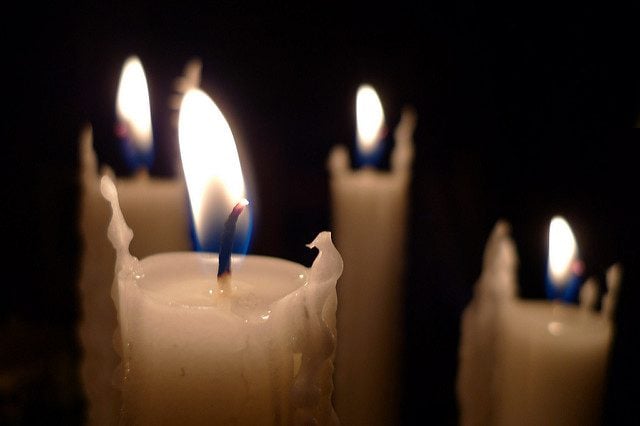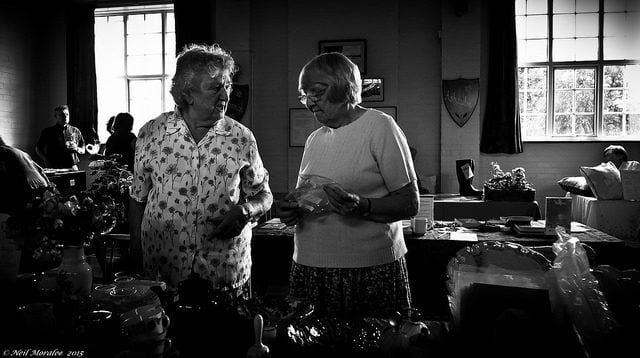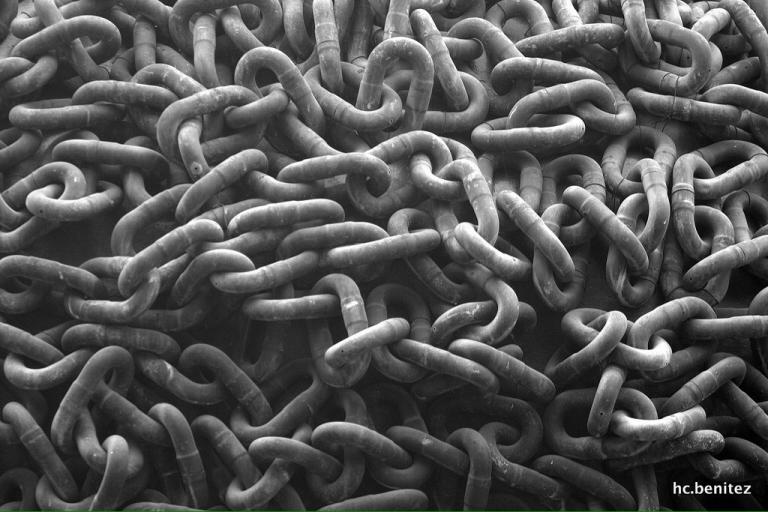
The resurrection didn’t just happen.
It happens.
The resurrection was not a one-time, historical event which happened 2,000 years ago.
It is an ongoing reality that has been happening again and again.
That’s why the recent conversations between Tony Jones and Marcus Borg over whether the resurrection happened bodily and physically, to my mind, miss the point.
It’s a red herring in the life of faith. The resurrection isn’t something we intellectually assent to, but something we are invited to participate in.
In the back-and-forth posts, Jones seemed to imply Borg’s understanding of the resurrection represent a massive break with historic Christianity. He casts Borg’s position as vague and coy but I’m not sure Jones fully understands what Borg argues.
In many ways, Borg expresses a view of the resurrection that is at once more orthodox and more ancient than Jones does.
By emphasizing the disciples’ and other Christians’ lived experiences of the resurrected Christ rather than the literal historicity of the event described in the gospels, Borg transcends the debate about whether the resurrection was literal, historical, and bodily or was parabolic, metaphorical and spiritual.
Instead, Borg, while not characterizing it this way himself, expresses a view of the resurrection that is deeply sacramental.
And I’m convinced any conversation about the resurrection that doesn’t engage with or isn’t informed by the sacraments is fundamentally incomplete.
At its heart, like the sacraments, the resurrection is a holy mystery, and like all holy mysteries there is a beautiful incoherence that refuses simplistic reduction to literal happenings. The Gospel stories show the resurrection to be disorienting, scary, and joyous for the disciples. Appropriately enough, it becomes difficult to nail down exactly what the resurrected Christ became. He had open wounds that did not bleed, a body that appeared behind locked doors, a body that took different forms. To reduce these brilliant, mysterious, and deeply symbolic stories to a historical report about the historical resurrection (or explainable rationally through quantum theory!) seems an insult to the authors who crafted them and layered them with rich meaning.
And it seems an insult to the deeply mysterious reality that continues to live today through them.
The Gospel stories of the resurrection are not intended to prove the resurrection happened bodily, literally, and historically. Rather, they are intended to invite us — the disciple of today — to experience the ongoing reality of resurrection.
In the easily overlooked gardener. In breaking bread with the stranger on the road. In the person who appears behind our carefully locked doors. In the hungry. In the naked. In the thirsty. In the forgotten.
What is clear from these stories and their impact is in the mysterious experience of the resurrected Christ and through participating with Christ in that resurrection experience, the disciples were transformed fundamentally.
This is how we understand sacraments — a holy mystery God invites us to experience and to participate in, and through our participation and union with God in it, we find our hearts strangely warmed, our lives transformed and entire selves changed into new creations. And it can be a faithful, traditional, and profound way to understand the resurrection, particularly given that many of the resurrection stories tie directly to and reflect the practice of the sacrament of communion.
It strikes me as odd that these conversations about the historicity of the resurrection almost always occur outside the context of the sacraments and liturgy. But when we view the resurrection sacramentally, we come face-to-face with the resurrected Christ who has been made known to us in the breaking of the bread, in the waters of baptism, in the communal proclamation Gospels. Each Sunday, in the liturgy and through the sacraments, we experience the resurrected Christ in the here and now, in the divine elements taken into our body.
Moving toward a sacramental view of the resurrection pushes the debate to a more consequential place, from a proving ground of the mind to an embodied reality that transforms us and requires us to act.
None these are objective, historical, quantifiable. They are mysteries we experience and receive and participate in.
It is this lived experience of the tradition I trust not the dogmatic point of its historic and literal happening.
So I do not believe the resurrection because it literally happened long ago. I believe the resurrection because it happens. It has happened to Christians for 2,000 years, and it has happened to me.
This sacramental understanding also challenges how many Christians might think our own relationship to the resurrection. It is a common belief that Christians will be resurrected after we die. We find it in the Nicene Creed, when we confess we look to the resurrection of the dead and the life of the world to come.
We understand these things, typically, as happening only in the next world and only after we physically die in this life. This view ties, much like Jones’ position, the resurrection to something that happens only after we die physically.
I can’t help but wonder if we oversimplify this, too.
When I read our baptismal liturgy, it seems clear that we aren’t to wait for the resurrection, but to share and to participate in the resurrection now. Indeed, in the death of baptism, we are resurrected to a new life.
So, it’s not that we will be resurrected.
It’s that we already are.
In baptism, I am resurrected.
Like all things in the life of Christ and the Reign of God, there is, of course, the paradoxical element of that this resurrection happens in the here-and-now and is also not yet fully realized. But it most certainly begins now and is available now.
So to me, the power of the resurrection isn’t its literal, bodily historicity, as if it were a static event that happened once, like World War II, the assassination of Martin Luther King, Jr., or my 30th birthday. Rather, its power is that it is an ongoing and dynamic sacramental reality in which we participate, through which we are transformed, in which we live and move and have our being.
We are resurrected now in our bodies.
We are resurrected now in community, not only as individuals.
We are people of resurrection, the people who have been resurrected in baptism, the people who live a resurrected life.
And that is the kind of thing that transforms us and others.
That is the kind of thing that can enable us to live on earth as in heaven.











